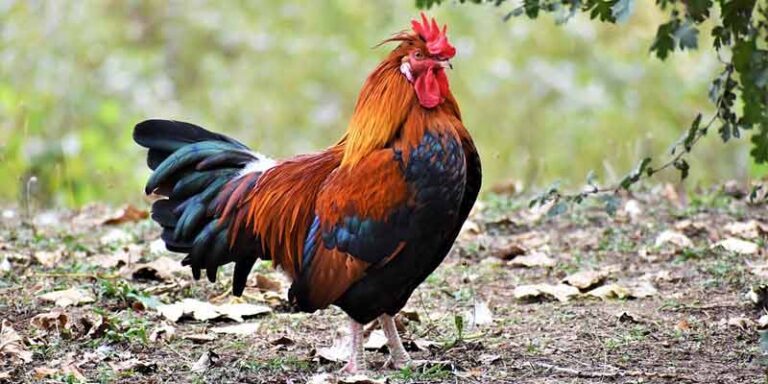Most people that raise backyard chickens will usually have a male chicken in the flock. A male chicken is also known as a rooster. If you do have a rooster, you may wonder if they can lay eggs.
In their article, we will find out if a male chicken can lay eggs and other related topics.
Can a Rooster Lay an Egg?
Chickens lay eggs from which new chickens can be hatched. These eggs are laid by hens in nests, or on the ground.
Male chickens or roosters do not lay eggs. They are unable to produce offspring because they do not have ovaries or oviducts (the tube that leads from an ovary to where an egg is laid). However, they may still produce sperm that can fertilize a female’s egg if she has no mate or if her mate is infertile or dead.
Why Don’t Male Chickens Lay Eggs?
There are two main reasons why male chickens cannot lay eggs:
-They don’t have ovaries which means they cannot produce viable sperm to fertilize female eggs
-They don’t have oviducts so there is nowhere for developing embryos to grow before emerging as chicks
What Is a Rooster Egg (Fairy Egg)?
Rooster eggs are the same size and shape as chicken eggs, but they have a thicker shell and a white yolk. The yolk is usually larger than that of a chicken egg, too.
Rooster eggs are most commonly used for baking purposes or as an ingredient in homemade mayonnaise. They’re also used by chefs in restaurants to make meringues and whipped cream because they’re easier to separate from their shells than chicken eggs.
Rooster Eggs Are Not Recommended For Cooking
Due to their higher fat content, rooster eggs are not recommended for cooking, especially scrambling or frying. This is because the high-fat content makes them more likely to burn or break open in the pan when cooked. Rooster eggs can be hard-boiled safely without problems, however.
What Is a Fart Egg?
A chicken fart egg is a unique type of egg that can be given to chickens. They are not fertilized, but they do have some unusual characteristics.
A chicken fart egg is also known as a “wind egg” or “fertile wind egg.” The name comes from the fact that it’s a product of a hen’s digestive system, rather than an unfertilized egg that has been incubated by sperm. The difference between a chicken fart egg and an unfertilized egg is that while unfertilized eggs contain only yolk and albumen (the white), chicken fart eggs have yolk and albumen plus an embryo.
The embryo in a chicken fart egg is usually less developed than in an unfertilized egg, but it still shows signs of life — you’ll see blood vessels and sometimes even brain matter on the surface of the shell.
How Do Chickens Lay Eggs Without a Rooster?
Some people might think that chickens need a rooster in order to lay eggs. But this isn’t the case. Chickens can lay eggs without a rooster if they are healthy and happy.
Chickens don’t need a rooster to produce eggs, but they do need him for reproduction. The male sex hormone, testosterone, triggers ovulation in hens. Without testosterone, hens remain infertile unless they are artificially inseminated with semen from a rooster or other male chicken.
Chickens are able to produce an egg without being fertilized by sperm because their bodies contain one ovum (egg) at a time. When it’s released from the ovary and enters the oviduct (the tube that leads from the ovary to the cloaca), it becomes surrounded by albumen (egg white) and shell membranes as it travels toward the cloaca. The shell forms around this mass as it moves along through the oviduct until it reaches its final destination — your refrigerator!
Should You Keep a Rooster in Your Flock?
Roosters are necessary for a flock’s health and well-being, but are they right for you? Roosters can be helpful in ensuring the health of your flock, but they also come with many challenges. If you’re willing to put up with rooster crowing, keeping a rooster in your flock may make sense for you. Just remember that there are alternatives to keeping a rooster if you don’t want him.
Conclusion
Male chickens are known as roosters. In most places, they are not used for farming because their only ability is to fertilize eggs. As a result, roosters do not lay eggs and cannot be used as egg-laying chickens.


